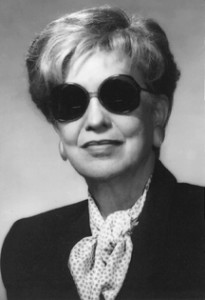It is my pleasure to direct your eyes to an essay by our beloved Dr. Louise Cowan. It is called “Jerusalem’s Claim on Us.” This essay has lifted up my soul so well that I do hope you set aside some time to read it. Dr. Cowan has delved into the very nature of the Greek and Hebrew traditions; her prose are captivating and brilliant. She struck my inner mind and heart:
And God saw everything that he had made,
and, behold, it was very good.In none other of the numerous cosmic creation myths that have been discovered (at least so I am told) is there anything like this account—a deity who fashions a cosmos out of love, possessing the majesty and benevolence of this creator God. He makes things by the power of his effective word and calls his creation good, in the way that an artist matches the idea to the form, knowing beforehand what he is doing and yet surprised at its realized beauty. Creation is a work of art, brought into existence by the spoken Word—God’s thought, his design, his gathering together in an imaginative act, his electrifying creation ex nihilo. Thus human persons, made in the
image of God, though not called to be ingenious or aesthetic, are by their very nature intended to bring things into being, as their creator did, poetically.
Here is the article’s beginning–excerpted to entice you even more:
What has Athens to do with Jerusalem? What has the Greek quest for excellence and order and beauty to do with the Hebrew quest for the living God? This is the question the Church Fathers asked themselves, a query that we still must raise from time to time. And in our day in particular, it is the question that Christian educators in the West should make their primary concern. For the liberal arts are indisputably Greek in their orientation: and yet those bright gods on Mt. Olympus, who mingled with men (and women!), jealously coveted sacrifices, and accepted official commemoration in marble temples and olive groves, have little to do with the hidden presence who spoke from a burning bush and forbade David to build him a temple. And the center of our faith that lonely one who hung on the cross at Golgotha and redefined the purposes of life took as his earthly ancestry the Hebrew tradition, with its pervasive tendency to regard as idolatry any representation such as we in the West have called art. Writing a poem or painting a picture is a little like fashioning a golden calf. Hence, at first glance, nothing seems further from the concerns of art and human culture than the Scriptural heritage with which Jesus Christ aligned himself. And yet the Western intellectual tradition contains a Hebrew strain even more surely than a Hellenic one. Perhaps, then, educators need to take a look at the peculiar contradictions and the wide inclusiveness of this much maligned and greatly misunderstood “master narrative,” as its detractors have called the Western tradition…
Continue reading the article by going here
This article first appeared in the Fall/Spring 2000-2001 issue of The Intercollegiate Review.
 The description below is from a resources page on the University of Dallas website, which will allow you to find and read this incredible essay by Dr. Louise Cowan.
The description below is from a resources page on the University of Dallas website, which will allow you to find and read this incredible essay by Dr. Louise Cowan.
Dr. Cowan is one of the founders of the University of Dallas. For many years she was the Chair of the English Department, and more recently she has served as the Dean of the Braniff Graduate School. She now holds a University Professorship and continues to teach the courses which have given the English Department a national reputation. She is the author of two books on the Southern Literary Renaissance and has written many essays on literature and the great books. She is also a founding member of the Dallas Institute for Humanities and Culture.
Dr. Cowan, is the designer of the Core Curriculum at University of Dallas as well as the Dallas Institute for Humanities and Culture; her contributions to the Dallas area, Catholic Church, and Academia are innumerable.

